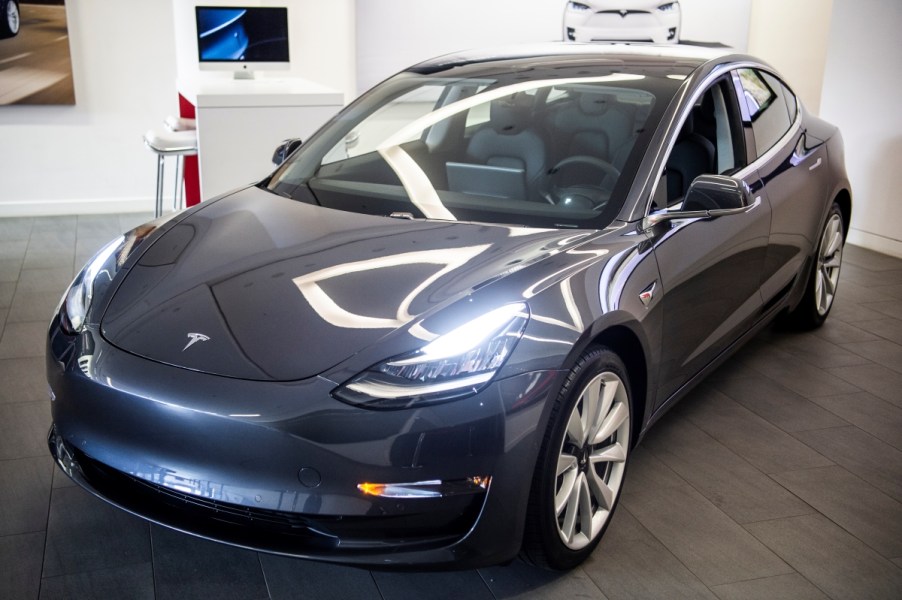
German Court at Odds With Tesla Over Autopilot
It looks like Tesla, the electric car manufacturer, has not learned the nuances yet of the wording chosen to promote its driver assistance systems. “Autonomous” and “Autopilot” are terms us automotive writers do not like to use. That is because nothing on the road is capable of fully autonomous driving yet. However, we acknowledge that there are a lot of driver assistance programs or aids out there right now. According to Bloomberg, however, Tesla is promoting its Model 3 in Germany as having “full potential for autonomous driving” and “having the ability to perform automatic driving by the end of 2019.” Those claims are rubbing some people wrong. So, the Center for Protection Against Unfair Competition, a German non-profit organization, has taken Tesla to court.

Promising more than Tesla can deliver
The consumer agency claims that Tesla is promising more than the electric Model 3’s systems can deliver. According to a lawyer for the group, Andera Ottofuelling, “A legal framework for autonomous inner-city driving doesn’t even exist yet in Germany.” Now a Munich court has indicated in a hearing that it is leaning toward the group’s arguments against Tesla.
Tesla promotes that they have an “Autopilot” and “Full Self-Driving” package. These systems are driver aids and at times, will remind the driver to put their hands back on the steering wheel. Tesla’s “Full Self-Driving” is an upgrade that can cost thousands of dollars additional. These systems work hand-in-hand with the multiple cameras and sensors around the vehicle.
Driver-assist and autonomous technology are currently in their infancy. As a developing technology, it is pricey. But as time progresses, the technology will filter down to more manufacturers and become more affordable. Blindspot monitoring and lane-keeping assist were not even around 15 years ago in the average vehicle. Today, those driver aids have become very good and are available for most common cars, or even available as standard in a few. That is the same that will happen with Tesla’s systems. However, the company is not there yet. Yet, is the operative term.
The terms need to be defined and accepted
The intricate details of the court case against Tesla are unknown as of right now. However, if one were to speculate, it would seem that it is wrongful to promote “Autopilot” and “Full Self-Driving” systems as such until a time that the systems can actually back up the autonomous-like abilities of a car. That is more than likely part of the argument that the German consumer agency involved in the lawsuit is putting forward. Additionally, the definition of “Autopilot” and “Full Self-Driving” have to be defined by governments and manufacturers.

In the United States, there are specific established guidelines for what can be considered a level one self-driving vehicle versus a level five self-driving vehicle. The guidelines were set up by the Society of Automotive Engineers and adopted by the US Department of Transportation. A level zero has no automation, while a level five is considered full autonomation. But, those same guidelines have not been adopted by the rest of the world yet. Nor is there any guarantee that other countries will not have their own requirements at different levels. As mentioned before, this whole field is in its infancy. As such, it is still learning and adapting, and right now, governments are trying to grasp it better. Tesla happens to be at the forefront, which is why the company is under scrutiny and hence, the court case.

Tesla is blazing a trail and governments are having trouble keeping up
In a nutshell, Tesla is blazing a trail, and government agencies across the globe are trying to keep up. Until everybody reaches an understanding of what the terms “Autopilot” and “Full Self-Driving” actually mean within the scope of autonomy, there will probably be bumps in the road. This German case is one of those road bumps.
UPDATE 7/15/2020: This story originally published on July 12th. Since then, the German court has sided with the Center for Protection Against Unfair Competition. The court said, “Using the term ‘Autopilot’ and other phrases suggest the cars were technically able to drive completely autonomously”. Consequently, Tesla is banned from advertisements that use the terms, “full potential for autonomous driving” and “Autopilot inclusive”. Tesla has the right to appeal the decision.


